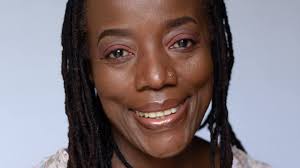African fiction is very popular at the moment because there are a great deal of stories African novelists are yet to tell about Africans and our lives. While, Tsitsi Dangarembga, author of Zimbabwean trilogy; Nervous Conditions, The Book of Not and recently Booker Prize short-listed The Mournable Body, takes the lead to chronicle real life experiences through her star character, Tambu in all her three books, she encourages other writers to pen and explore their life experiences through characters as well.
“When we bring new characters to the global stage who are in different environments and engaging with different challenges this is a breath of fresh air for the rest of the world where characters are known and there isn’t a great deal that is yet to be explored,” she says about writing.
Tsitsi Dangarembga, like every other African novelist in the world wishes to bring forth an aspect of their representative country, in her case, Zimbabwe, for inspection of their current state of affairs impacting the people.
“Writing about what goes on in Zimbabwe and on the continent in a speculative manner might be the solution to enable young people to engage with the situation from a different point of view.
People have come to me and said it’s so wonderful to have the painful experiences of being African and especially an African woman put down on the page like that because it helps them to work through.”
“Writing is an act of bravery and I think that courage and that passion that is needed to enable you to turn that story is what comes across in the literature.”
Sometimes however, standing up comes at a cost. On 31 July, 2020, Tsitsi Dangarembga was arrested for allegedly inciting public violence during anti-corruption protests which the authorities described as an “insurrection”.
Her arrest took place on 31 July after hundreds of police and soldiers were deployed on the streets ahead of planned demonstrations against President Emmerson Mnangagwa’s government.
“There was a deathly silence in the streets, where neither cars nor pedestrians moved. There were no groups of demonstrators,” Dangarembga wrote for PEN, describing her arrest. “Although people in Zimbabwe want change, we do not yet have the capacity, material or psychological, to create it.”
She said that, after meeting a friend and walking towards town, she stopped at a junction, where “a strange man came up and filmed our placards without asking our permission”. When the riot police arrived, the author was told her demonstration was illegal. “There were a couple of dozen riot police in the back of the truck, I thought better of exhibiting my screenshot of the constitution. My friend and I climbed into the vehicle. Minutes later, we were sitting on a concrete floor in Borrowdale police station.”
The writer was freed on bail and required to appear in court on 18 September. When she arrived, she was informed that the prosecutor was not available and the hearing was delayed until 24 September. At her second court date, Dangarembga was told the prosecutor was unable to attend again, a lack of efficiency she called “a symptom of how the country is run”.
No stranger to contention, Tsitsi Dangarembga says she will continue to push for change in her country either through her writing or in her activism.
Despite being arrested in July and charged in September of this year in Harare in Zimbabwe, during anti-corruption protests, Tsitsi Dangarembga says being shortlisted for the 2020 Booker Prize couldn’t have come at a more suitable time.
“I was feeling very bleak in March and April, earlier this year and so this is a big lift, it gives me the inspiration to go on and it makes me think that my work, maybe, is also a light to other people.”
Born to educators, in colonial Zimbabwe, then known as Southern Rhodesia it seems Tsitsi Dangarmbga was fated to lead the way in making a difference. Having had a brief stint as a teacher and being an illustrious and colourful filmmaker, Tsitsi set herself up for dominance in the literary world not only on the continental stage but also the global stage.














